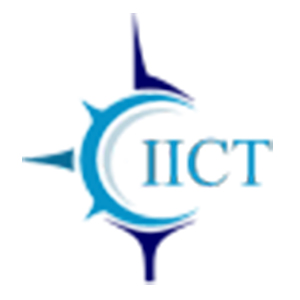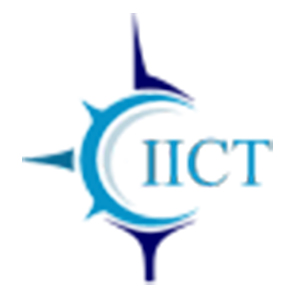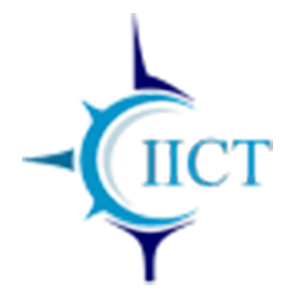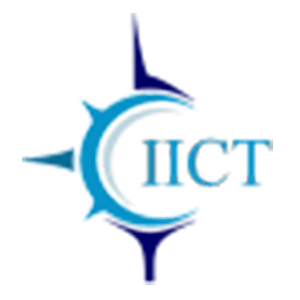Syllabus of SCCM 2012 Course
Modules of SCCM
There are two papers in System Center Configuration Manager. We have listed the same below.
- Deploying System Center Configuration Manager
- Administering System Center Configuration Manager
Deploying System Center Configuration Manager
Module 1: Overview of System Center Configuration Manager
This module describes the Configuration Manager Infrastructure and typical deployment scenarios.
Lessons:
- Introduction to System Center Configuration Manager
- Overview of the Configuration Manager Server Default Site System Roles
- Overview of the Configuration Manager Server Optional Site System Roles
- Overview of Configuration Manager Deployment Scenarios
Module 2: Planning and Deploying a Stand-Alone Primary Site
This module explains the planning process, inputs, and typical planning activities for deploying a stand-alone primary site. It also describes the prerequisites for installing a site server and related components, the process of installing, configuring, and monitoring a stand-alone primary site. This module also describes the requirements for managing Internet-based clients and configuring a Microsoft PKI solution.
Lessons:
- Planning a System Center Configuration Manager Stand-Alone Primary Site Deployment
- Preparing to Deploy a Configuration Manager Primary Site
- Installing a Configuration Manager Site Server
- Performing Post-Setup Configuration Tasks
Lab :
- Installing a Configuration Manager Primary Site
- Configuring the Prerequisites for Configuration Manager Deployment
- Extending the Active Directory Schema
- Installing a Configuration Manager Stand-Alone Primary Site
- Lab: Performing Post-Setup Configuration Tasks
- Validating the Installation of the Primary Site
- Performing the Initial Configuration of the Primary Site
Module 3: Planning and Configuring Role-Based Administration
This module explains how to plan and configure administrative roles.
Lessons:
- Overview of Role-Based Administration
- Identifying IT Roles in Your Organization
- Configuring Role-Based Administration
Module 4: Planning and Deploying a Multiple-Site Hierarchy
This module explains how to plan and deploy a multiple-site hierarchy including the central administration site, primary sites, and secondary sites.
Lessons:
- Planning a Configuration Manager multiple-site Hierarchy
- Deploying a Configuration Manager Site
- Deploying the Central Administration Site
- Deploying Primary Sites in a Hierarchy
- Deploying Secondary Sites
- Lab (optional): Installing the Central Administration Site
- Extending the Active Directory Schema
- Installing the Central Administration Site
- Validating the Installation
Lab (optional):
- Installing a Primary Site in an Existing Hierarchy
- Installing a Primary Site in an Existing Hierarchy
- Validating the Installation
- Automating the Installation of a Primary Site
Lab (optional):
- Installing a Secondary Site
- Configuring Prerequisites
- Installing a Secondary Site from a Primary Site
- Validating the Installation
Module 5: Planning, Configuring and Monitoring Content Management.
This module describes the planning and configuring content management throughout the hierarchy
Lessons:
- Planning for Content Management
- Configuring and Monitoring Content Management
Lab:
- Configuring Content Management
- Create a Distribution Point and a Distribution Point Group
- Distribute and Monitor Content
Module 6: Planning and Configuring Discovery Methods and Client Installation Methods.
This module describes the planning and configuring of various types of Discovery Methods and Client Installation Methods.
Lessons:
- Introduction to Discovery Methods
- Configuring various types of discovery methods
- Introduction to Client Installation Methods
- Configuring and Monitoring Client Installation Methods
Lab:
- Configuring various types of Discovery Methods
- Configuring various types of Client installation methods
Module 7: Maintaining and Monitoring System Center Configuration Manager
This module describes how to perform various Configuration Manager Maintenance tasks, and how to monitor site systems.
Lessons:
- Overview of Configuration Manager Site Maintenance
- Performing Backup and Recovery of a Configuration Manager Site
- Monitoring Configuration Manager Site Systems
Lab:
- Maintaining and Monitoring System Center Configuration Manager
- Configuring the Site Backup Task
- Recovering the Site from a Backup
- Monitoring Configuration Manager
Module 8: Migrating from System Center Configuration Manager 2007 to System Center 2012 Configuration Manager
This module describes the migration of objects from Configuration Manager 2007 to Configuration Manager 2012.
Lessons:
- Overview of the Migration Process
- Preparing Configuration Manager 2007 Sites for Migration
- Configuring Migration Settings
- Migrating Objects
Lab (Optional):
- Migrating from System Center Configuration Manager 2007 to System Center 2012 Configuration Manager
- Configuring the Source Hierarchy
- Creating a Migration Job and Performing Migration
Administering System Center Configuration Manager
Module 1: Overview of System Center Configuration Manager
This module describes the System Center Configuration Manager feature set and explains how to manage sites by using the System Center Configuration Manager console.
Lessons:
- Introduction to System Center Configuration Manager
- Overview of System Center Configuration Manager Architecture
- Overview of the Configuration Manager Console
- Tools for Monitoring and Troubleshooting a Configuration Manager Site
Lab:
- Exploring the Configuration Manager Console
- Monitoring and Troubleshooting a Configuration Manager Site
- Managing Components by Using Configuration Manager Service Manager
- Monitoring Site and Component Status
- Reviewing Log Files by Using Configuration Manager Trace Log Tool
Module 2: Discovering and Organizing Resources
This module explains how to configure discovery methods, configure boundaries and boundary groups and manage device collections.
Lessons:
- Configuring Resource Discovery
- Configuring Boundaries and Boundary Groups
- Configuring Device Collections
Lab:
- Configuring Resource Discovery and Boundaries
- Configuring Boundaries and Boundary Groups
- Creating a Device Collection
- Configuring a Maintenance Window
Module 3: Managing the Configuration Manager Client
This module explains how to configure client deployment methods, configure client settings, and monitor client status.
Lessons:
- Overview of the Configuration Manager Client
- Pre-requisites of Configuration Manager Client
- Deploying the Configuration Manager Client
- Managing Client Settings
- Configuring and Monitoring Client Status
Lab:
- Deploying the Configuration Manager Client by Using Client Push Installation
Module 4: Managing Inventory and Software Metering
This module explains how to configure and manage hardware and software inventory, monitor inventory data flow, and use Asset Intelligence and software metering.
Lessons:
- Overview of Inventory
- Configuring Hardware Inventory
- Configuring Software Inventory
- Configuring Asset Intelligence
- Configuring Software Metering
Lab:
- Configuring Hardware Inventory
- Configuring Software Inventory
- Configuring Asset Intelligence
- Configuring Software Metering
Module 5: Managing Software Deployments by Using Packages and Programs
This module explains how to create and deploy packages and programs.
Lessons:
- Configuring Software Distribution
- Configuring Packages and Programs
- Distributing Content to Distribution Points
- Deploying Programs to Configuration Manager Clients
Lab:
- Managing Software Deployment by Using Packages and Programs
- Preparing the Infrastructure for Software Deployment
- Creating a Package and Configuring Programs
- Distributing Content to a Distribution Point
- Deploying a Program to Configuration Manager Clients
Module 6: Deploying and Managing Software Updates
This module explains how to deploy and manage software updates.
Lessons:
- Overview of Software Updates
- Preparing the Configuration Manager Site for Software Updates
- Managing Software Updates
- Configuring Automatic Deployment Rules
- Monitoring and Troubleshooting Software Updates
Lab:
- Configuring the Site for Software Updates
- Configuring and Synchronizing the Software Update Point
- Deploying and Managing Software Updates
- Determining Software Update Compliance
- Deploying Software Updates to Clients
- Configuring Automatic Deployment Rules
Module 7: Managing Operating System Deployment
This module explains how to deploy operating systems by using the System Center Configuration Manager infrastructure.
Lessons:
- Overview of Operating System Deployment
- Preparing the Site for Operating System Deployment
- Capturing an Operating System Image
- Deploying an Operating System
Lab (Optional):
- Preparing the Environment for Operating System Deployment
- Configuring the Network Environment for Operating System Deployment
- Managing Site System Roles Used to Support Operating System Deployment
- Building and Capturing a Reference Image
- Creating a Build and Capture Task Sequence
- Capturing the Reference Computer
- Performing an In-Place Upgrade
- Preparing the Operating System Image
- Creating a Task Sequence to Deploy an Image
- Deploying an Image
Module 8: Managing Compliance Settings
This module explains how to manage configuration items and baselines to assess and remediate the compliance of settings on devices.
Lessons:
- Overview of Compliance Settings
- Configuring Compliance Settings
- Viewing Compliance Results
Lab (Optional):
- Managing Compliance Settings
- Managing Configuration Items and Baselines
- Viewing Compliance Settings Reports
- Configuring Remediation in Compliance Settings
- Using Compliance Information to Create Collections
Module 9: Configuring Wake on LAN, Power Management, and Remote Control
This module explains how to configure Wake on LAN, power management policies, and Remote Control.
Lesson:
- Configuring Wake on LAN
- Overview of Out of Band Management
- Configuring Power Management Settings
- Configuring Remote Control
Lab (Optional):
- Configuring Power Management Settings
- Applying a Power Management Plan
- Configuring Remote Control
- Configuring the Remote Tools Client Settings and Permissions
- Managing Desktops by Using Remote Control
Module 10: Managing Mobile Devices
This module explains how to configure mobile device management settings.
Lesson:
- Configuring Mobile Device Management
- Configuring a Public Key Infrastructure
- Depth Management of Mobile Devices
- Deploying Applications to Mobile Devices
Lab (Optional):
- Configuring PKI for Configuration Manager
- Creating Certificate Templates for Configuration Manager
- Deploying Certificates for Configuration Manager
- Managing Mobile Devices
- Preparing the Infrastructure for Mobile Device Management
- Enrolling a Mobile Device
- Managing Compliance Settings for a Mobile Device
- Deploying an Application to a Mobile Device
General Information to Students
Before attending this course, students must have system administrator-level working knowledge in the below concepts.
- Networking fundamentals, including TCP/IP and Domain Name System (DNS) concepts.
- Active Directory principles and management.
- Windows Server management including Windows Server 2008 and Windows Server 2008 R2
- Microsoft Windows client fundamentals.
- Deployment, configuration, and troubleshooting for Windows-based personal computers.
- Microsoft SQL Server 2008 including Reporting Services
SCCM 2012 Training Course Highlights
1) Our Training Center batch sizes are generally very small size 3-5 members OR 1 to 1 also, so students receive direct, hands-on training from us.
2) 100% practical training only. It is not a slide show training program / theory class program.
3) At the end of this class, definitely you will refer your colleagues / friends / relatives for our training.
4) Conducting regularly online SCCM 2012 training for US peoples in all time zones (PST,CST,EST,HST,MST)
5) Installation of Softwares in your desktop / laptop will be done.
6) Will be provided self evaluation testing software, exam simulator, dumps & books with this training.
7) Continuous support is provided for any of your on-site problems. Assistance will be provided and you will be recommended to some of IT development firms.
Why Enroll with IICT for SCCM 2012 Training Course ?
1) Two days free trial - If candidate likes this course, these days are adjusted in his actual schedule.
2) Live Project Exposure of Fortune companies.
3) Training by Subject Matter experts from CMM Level 5 companies
4) Both Online and Classroom Training offered at SCCM 2012
5) Our basic course worth more than the advanced course of other institutes/freelancers.
6) Free Interview preparations.
7) 100% free assistance for SCCM 2012 certifications.
8) Practical and Hands on Training for SCCM 2012 Course .
9) 100 % guarantee in succeeding the certification at affordable fees.
10) Also provide online training to students of foreign countries.
SCCM 2012 Training Batch Size
Regular Batch ( Morning, Day time & Evening)
Seats Available : 6 (maximum)
Weekend Training Batch( Saturday, Sunday & Holidays)
Seats Available : 8 (maximum)
Fast Track batch
Seats Available : 7 (maximum)
SCCM 2012 Training Duration
Regular Classes( Morning, Day time & Evening)
Duration : 6 weeks
Weekend Training Classes( Saturday, Sunday & Holidays)
Duration : 8 Weeks
Fast Track Training Program( 3+ hours classes daily)
Duration : within 4 weeks





